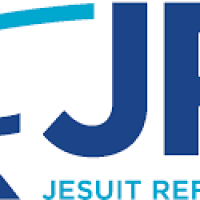Prompt treatment with effective antimalarial drugs is a critical component of malaria intervention to reduce malaria cases and deaths. However, resistance to antimalarial drugs challenges our ability to save lives threatened by malaria and to eliminate the burden that malaria places on individuals and societies.
Measurement of drug efficacy and resistance in malaria is complex. Studies of clinical and parasitological outcomes are the main sources of information on which national malaria control programs base their treatment policies. The generation of quality, comparable data on antimalarial drug efficacy and resistance is important for the early detection of resistance, which in turn enables timely action to prevent its spread and limit the impact on global health.
WHO calls for regular assessment of the efficacy of first- and second-line ACTs at least every two years at selected sentinel sites in each malaria-endemic country. It is critical to support countries in generating reliable data on antimalarial drug efficacy and resistance. In response to the threat of antimalarial drug resistance, there is a need to increase support to countries to conduct high-quality antimalarial drug efficacy and resistance studies. Consultants will be recruited and trained to provide the necessary guidance to countries.
In addition to improved availability of quality data, the threat of resistance requires an improved understanding of factors driving resistance and the interventions needed to respond. Consultants will provide guidance for country-specific assessments and plans on antimalarial drug resistance.
Deliverables
Specific deliverables will be pre-defined for each consultancy. Consultants are expected to contribute to assignments and perform a variety of tasks related to the following:
- Deliverable 1: Improved quality data on antimalarial drug efficacy and resistance.
- Deliverable 1.1: Work with countries to develop and finalize therapeutic efficacy protocol using the standard WHO protocol.
- Deliverable 1.2: Conduct country level training workshops on antimalarial drug efficacy and resistance.
- Deliverable 1.3: Work with countries to ensure that therapeutic efficacy studies are implemented at high quality through on site guidance.
- Deliverable 1.4: Conduct clinical monitoring of therapeutic efficacy studies at country level and do data analysis.
- Deliverable 1.5: Partake in and help organize regional drug efficacy network meetings.
- Deliverable 2: Provide guidance to countries in the response to resistance.
- Deliverable 2.1: Develop country-specific assessments of factors driving antimalarial drug resistance.
- Deliverable 2.2: Develop country-specific plans for the response to antimalarial drug resistance.
Qualifications, experience, skills and languages
Educational Qualifications:
Essential:
- Band Level B: A first level university degree in in medicine, epidemiology, public health or related field.
- Band Level C: Advanced university degree in epidemiology, public health or related field.
Desirable:
- Band Level B: Advanced university degree in public health, health science or related field.
- Band Level C: Additional professional qualifications related to public health, health systems strengthening or related field.
Experience
Essential:
Depending which area of work the consultant is applying for, the applicant must have:
- Experience in studies of antimalarial drug efficacy:
- For Band level B: At least 5 years of field experience in conducting studies of antimalarial drugs efficacy.
- For band level C: At least 10 years of field experience in conducting studies of antimalarial drugs efficacy.
OR
- Experience in guiding countries in developing plans that takes into consideration the threat of antimalarial drug resistance:
- For Band level B: At least 5 years of international experience in guiding countries in developing plans that takes into consideration the threat of antimalarial drug resistance.
- For band level C: At least 10 years of international experience in guiding countries in developing plans that takes into consideration the threat of antimalarial drug resistance.
Desirable:
- International experience in guiding countries in therapeutic efficacy studies of antimalarial drugs.
- Experience in assessing strength and weakness of malaria activities at country level.
- Experience in malaria microscopy including parasite counting.
Skills:
Essential:
- Demonstrated knowledge of public health and health systems functions.
- Demonstrated skills in report writing, data management, and standard Microsoft office applications.
- Familiarity with the WHO standard protocol for therapeutic efficacy studies.












